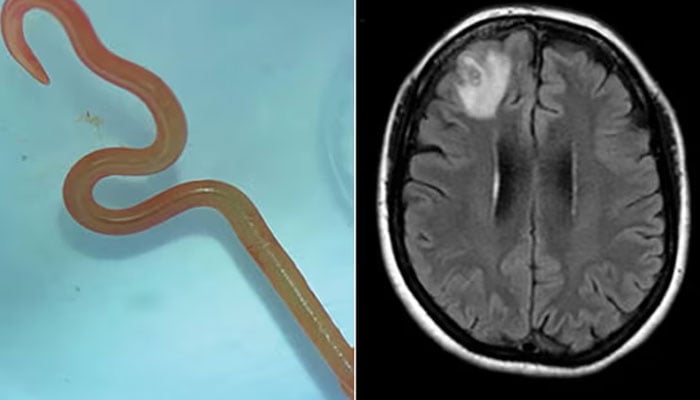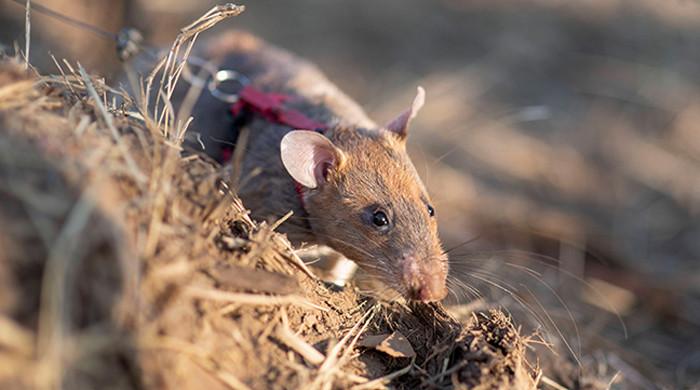8cm python roundworm pulled out from woman's brain; surgeons shocked
64-year-old patient underwent an intricate surgery at Canberra Hospital that led to the startling finding
August 29, 2023

A live snake roundworm has been pulled out from the brain of a woman, leaving the medical fraternity astonished by the unprecedented discovery.
The 64-year-old patient, hailing from south-eastern New South Wales, underwent an intricate surgery at Canberra Hospital that led to the startling finding.
Dr Hari Priya Bandi, the neurosurgeon who carried out the procedure, was left in disbelief when she pulled out an 8cm-long parasitic roundworm from the patient's brain.
Doctor found the unusual occurrence during an operation to address the patient's series of symptoms, including abdominal pain, fever, and neurological abnormalities.
Dr Bandi immediately reached out to her medical peers, including infectious diseases physician Dr Sanjaya Senanayake, seeking guidance on the unusual case.

Dr Senanayake expressed his shock, saying, "Neurosurgeons regularly deal with infections in the brain, but this was a once-in-a-career finding. No one was expecting to find that."
The medical team at Canberra Hospital swiftly joined forces to unravel the identity of the roundworm and decide on a suitable course of action for the patient.
As the team delved into medical literature and resources, they found themselves unable to pinpoint a similar case. Seeking expert guidance, they turned to a CSIRO scientist with specialised knowledge of parasites.
Upon examining the live worm, the scientist identified it as the Ophidascaris robertsi roundworm, a species usually found in pythons. Remarkably, this marked the first-ever instance of this parasite being discovered in humans.
The patient's potential mode of infection has raised intriguing hypotheses.
While she had no direct contact with snakes, her surroundings included a lake area inhabited by carpet pythons. It is believed that the patient might have encountered the parasite indirectly through contaminated grasses she used in cooking.
Dr Senanayake remarked, "She often collected native grasses, including warrigal greens, from around the lake to use in cooking."
The uniqueness of the case prompted cautious and calculated medical intervention. The patient's treatment included addressing potential larvae presence in other parts of her body.
However, the unfamiliarity with this particular condition meant that the medical team had to tread carefully. Inflammation triggered by dying larvae could pose risks, especially in sensitive organs like the brain.
Hence, a comprehensive approach was adopted to ensure the patient's safety.
Dr Senanayake expressed his admiration for the patient's courage, acknowledging the significance of being the first person in the world to face such a situation.
As the patient continues to recover under close observation, researchers are exploring the possibility of a pre-existing medical condition that may have contributed to the parasite's intrusion. This extraordinary case, documented in the journal Emerging Infectious Diseases, underscores the potential risks of zoonotic diseases, where infections jump from animals to humans.
Dr Senanayake emphasised the broader implications, saying, "This Ophidascaris infection does not transmit between people, so this patient's case won't cause a pandemic like Covid-19 or Ebola." As habitats intertwine, the risk of novel infections necessitates increased vigilance, he concluded.











